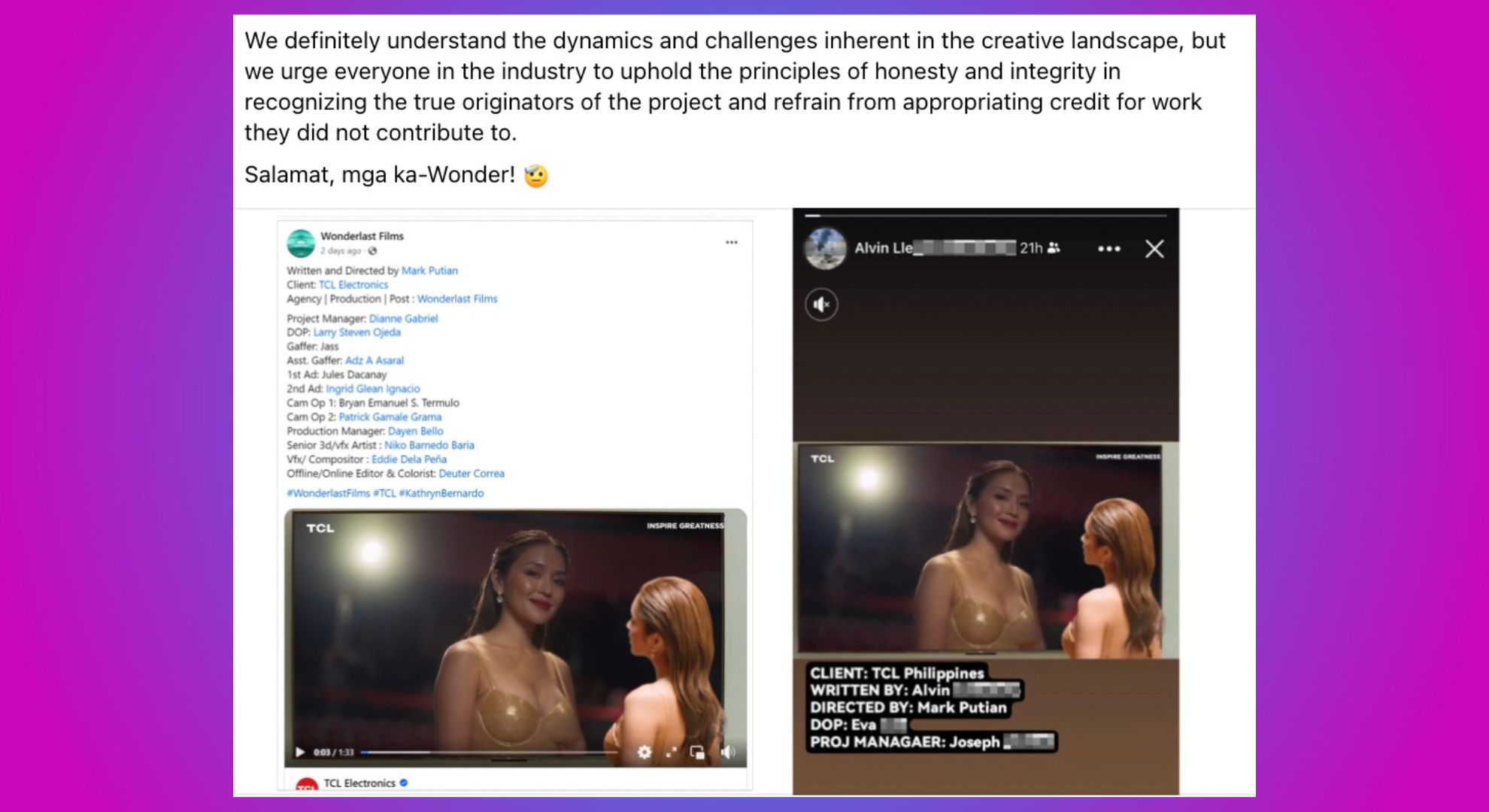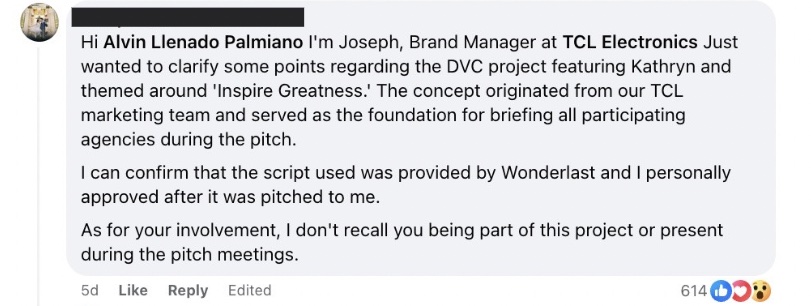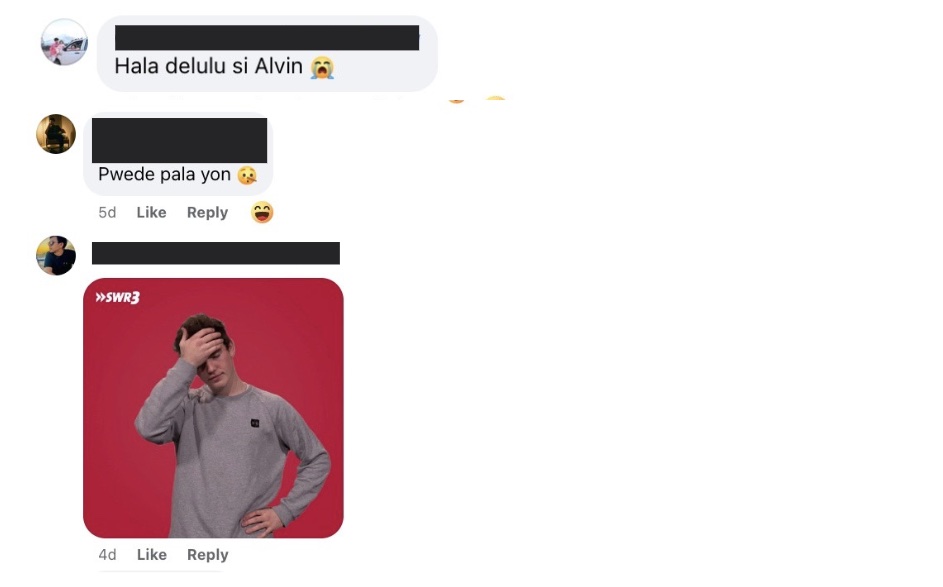Okay, so picture this: You pour in countless hours of creativity, sweat, and dedication into a project, only to see someone step forward and claim it as theirs. Whether it’s in the workplace, academia, or the arts, the act of taking credit for work that isn’t one’s own is not just a betrayal of trust—it’s a theft of recognition, integrity, and merit.
Yet, this all-too-common phenomenon continues and there isn’t any way of stopping it. From plagiarized papers to stolen ideas, the issue of people taking credit for the work of others isn’t merely an ethical dilemma at this point; people need to be held accountable for it.
In the Philippines, it’s a prevalent problem that people don’t seem to take seriously. Just recently, a former professor from the University of Southern Mindanao came forward with a public apology for plagiarizing his student’s thesis. This caused outrage in the academic community, as well as on social media.
Not even a week later, Wonderlast Films, a creative production house, posted a statement on Facebook about their most recent project with TCL Philippines that featured actress Kathryn Bernardo.
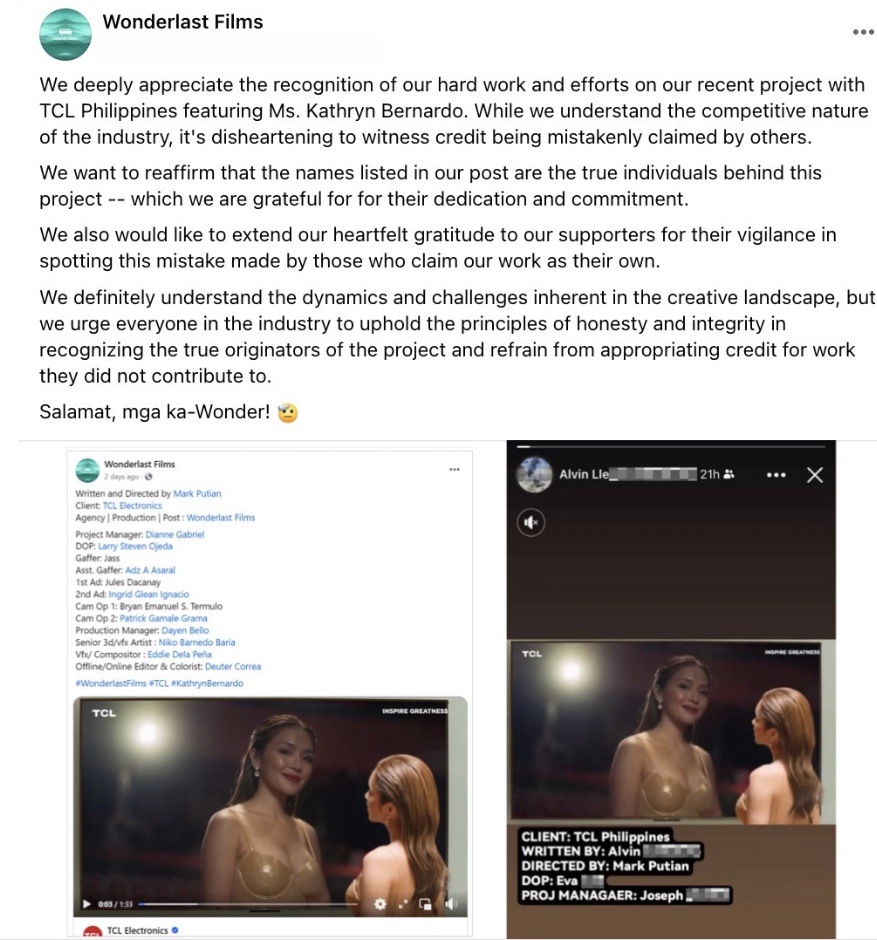
In the post, which included screenshots of their own post which listed the names of the people who worked in the project and an Instagram story of a certain “Alvin” who listed himself as the Writer behind it, said that it was “disheartening to witness credit being mistakenly claimed by others.”
Wonderlast Films also thanked those who pointed this out to them and for being vigilant in seeing the mistake.
They ended the post by saying, “We definitely understand the dynamics and challenges inherent in the creative landscape, but we urge everyone in the industry to uphold the principles of honesty and integrity in recognizing the true originators of the project and refrain from appropriating credit for work they did not contribute to.”
Comments under the post expressed their concerns at this obvious credit grabbing, as well as directly tagged the person who had put their name as the Writer of the project. One comment also called out the person, saying that he did not recall him being part of the project or being present during the meetings.
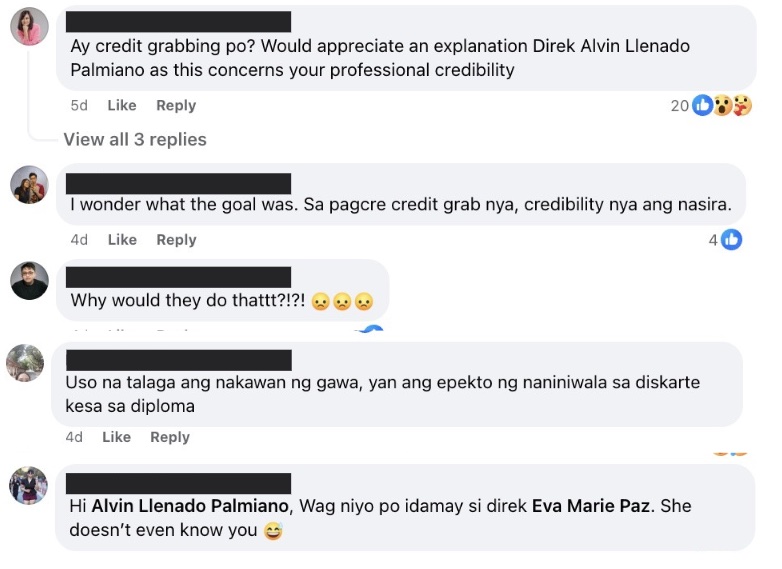
One other comment, coming from the man in question himself, said that he had already messaged Wonderlast Films and apologized for the post as his “account was hacked.”
As of this writing, it’s unclear what truly transpired after the incident. But one thing’s for sure, no apologies will be given if he wasn’t called out. This is also a call to professionals in the field–we should know better that the time and effort spent creating content, or any other original material, are no joke. Wouldn’t it feel more fulfilling to be noticed by people because of your own work? But, yes, unfortunately, ‘credit grabbers’ are really out there. It’s unbelievable how we also need to spent effort in protecting our intellectual properties.
So, that’s that. What do you all think about the situation? Shouldn’t it be time for all of us to start holding people who steal others’ works accountable?
Other POP! stories that you might like:
Plagiarism accusations surrounding Eraserheads’ classic ‘Alapaap’ resurface
Video content creator calls out fellow creator Whamos for using his videos without permission
Filipino-Nigerian calls out restaurant for ‘racist’ note written on receipt

